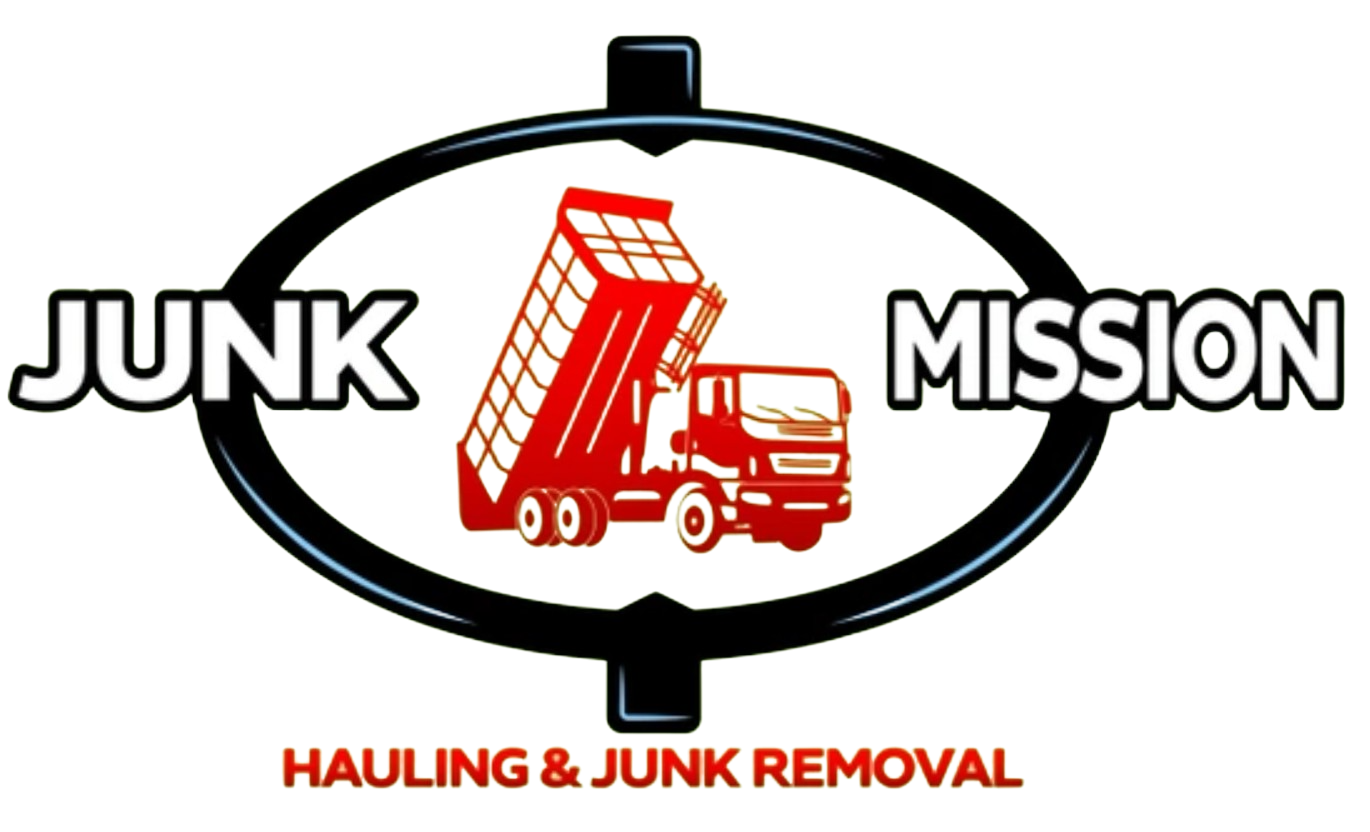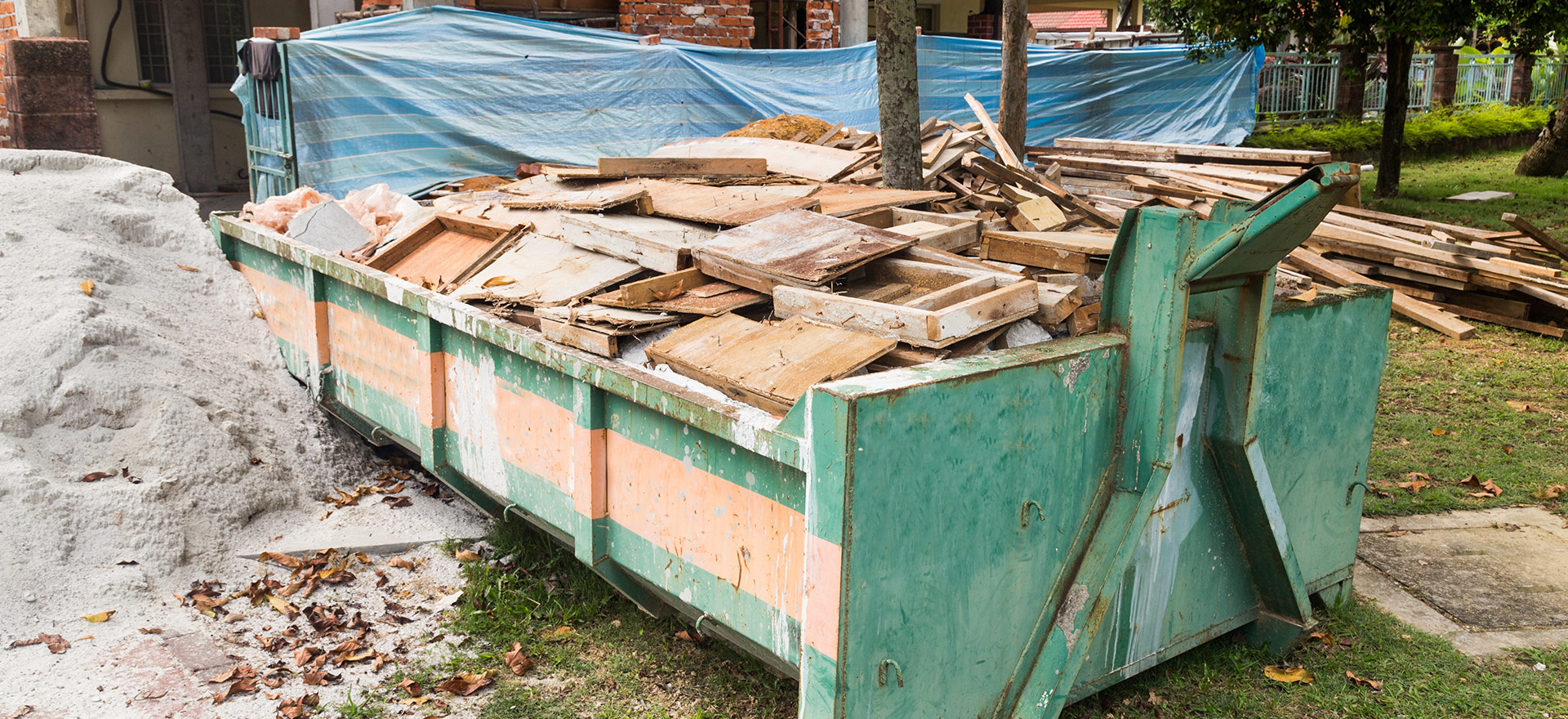
Construction Debris Removal in Huntington Beach, CA
Efficient and responsible construction debris removal is crucial to maintaining a clean and safe environment. As with any urban area, construction activities in Huntington Beach produce a significant amount of waste, including concrete, bricks, wood, metal, drywall, insulation, and other materials.
Construction debris removal in Huntington Beach refers to collecting, hauling, and disposing waste materials generated during construction, demolition, renovation, or remodeling projects. When you call a construction debris removal service, you can be sure they will remove all the trash and other things you want.
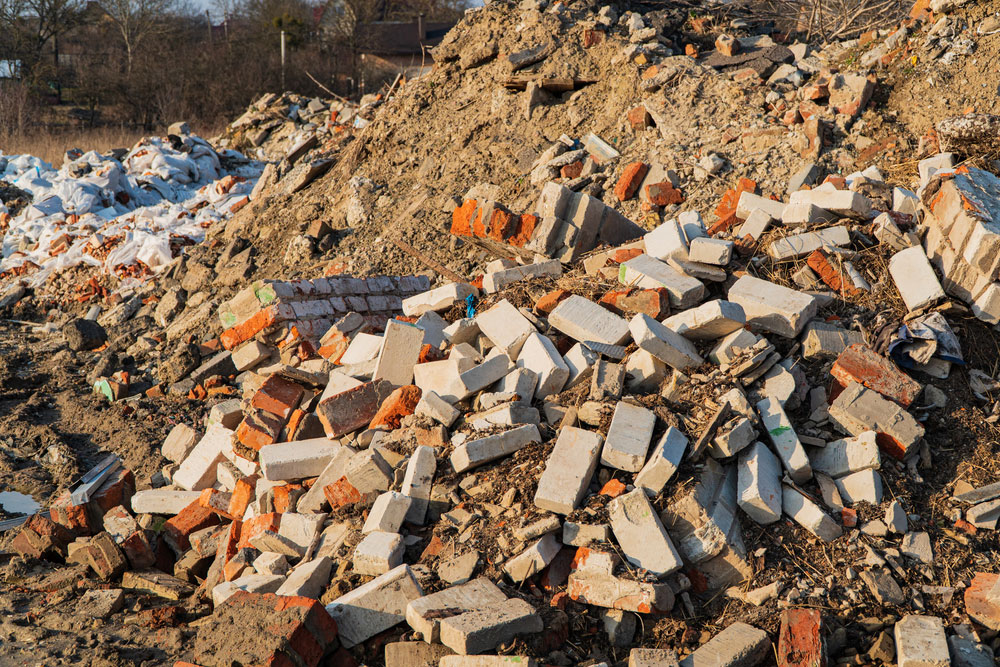
Construction Debris Services in Huntington Beach, CA
Construction debris is the waste generated from the building, tearing down, renovating, or upgrading. Most of the time, these materials are no longer needed once a project finishes. It requires proper handling and disposal to protect the environment and keep the building site and its surroundings safe.
Concrete and masonry are the most common construction debris taken by service providers. It includes bricks, concrete blocks, cement, asphalt, tiles, and other masonry materials used in construction. Lumber, timber, plywood, and other wooden materials you don’t need belong in the dumpster. The contractor will remove this type of waste from your property.
Also known as gypsum board or plasterboard, drywall came for interior walls and ceilings, but offcuts and waste pieces can become debris you cannot reuse on your next project. Various types of insulation, such as fiberglass, foam, or mineral wool, also end in the dumpster.
Pipes and plumbing can make more of a mess than you might have thought. Construction debris includes broken or unused glass panels, windows, and mirrors. Scrap metal from structural elements, such as steel beams, pipes, wires, and discarded metal fixtures, contributes to construction debris. A recycling company can treat these materials to make a new product.
Construction Debris Removal in Huntington Beach, CA
Environmental impact and sustainability are two critical concepts that play a crucial role in shaping how human activities, including construction and various industries. Habitat destruction, pollution, and overexploitation of natural resources due to sourcing of raw materials can lead to the loss of biodiversity, threatening plant and animal species and disrupting ecological balance.
Proper debris removal ensures responsible construction waste management, minimizing the amount of material sent to landfills. It reduces the strain on waste disposal sites and prevents the release of harmful substances into the environment.
Responsible construction debris removal also contributes to work without interruptions caused by clutter and obstacles. It allows workers to access necessary areas and equipment more efficiently.
Additionally, construction sites must adhere to local regulations and safety standards. Failure to manage debris properly can lead to project delays, penalties, or even work stoppages due to non-compliance.
Construction Debris Compliance in Huntington Beach
The City of Huntington Beach has a contract with Republic Services says they can only pick up trash and recyclables. It includes all temporary bins for construction and demolition on private land or the public right-of-way.
The city may require some construction projects to submit waste management plans as part of the permit application process. These plans outline how the project owner will manage construction debris, recycle, or dispose of it responsibly during the project.
Depending on the project, Huntington Beach may have waste diversion requirements, which mandate that a project owner divert a certain percentage of construction debris from landfills through recycling, reusing, or other environmentally friendly methods. Contractors and construction companies need to comply with these diversion goals.
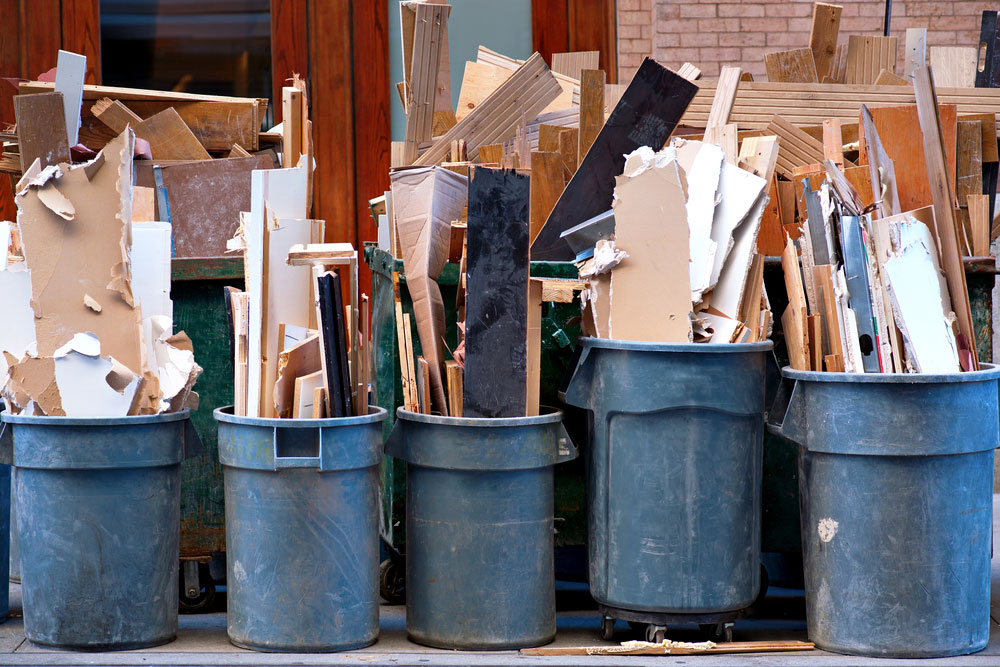
Construction Debris Removal Pickup in Huntington Beach, CA
The most traditional method involves transporting construction debris to landfills, disposed of in designated areas. Landfills are engineered sites designed to contain and manage waste. While landfill disposal is widely available, there are more sustainable options than this, as it can contribute to environmental pollution and resource depletion.
Huntington Beach recommends recycling since it is an environmentally responsible method that involves sorting and processing construction debris to recover reusable materials. This process reduces the amount of waste sent to landfills, conserves resources, and decreases energy consumption.
Since some construction materials like doors, windows, fixtures, and lumber are reusable, salvaging items can save on costs, reduce the need for new materials, and promote sustainable construction practices.
Construction and demolition recycling facilities are specialized centers equipped to sort, process, and recycle construction debris. These facilities use advanced machinery and manual labor to separate different types of materials, making recycling more efficient and maximizing resource recovery.
Bringing this type of waste may require equipment designed to manage waste efficiently. Dumpsters are large, rectangular containers with open tops for collecting and storing construction debris on-site. They come in various sizes to accommodate different project needs.
Roll-off containers are similar to dumpsters but are larger and typically transported on a specialized truck. Roll-off containers are well-suited for larger construction projects that generate significant waste.
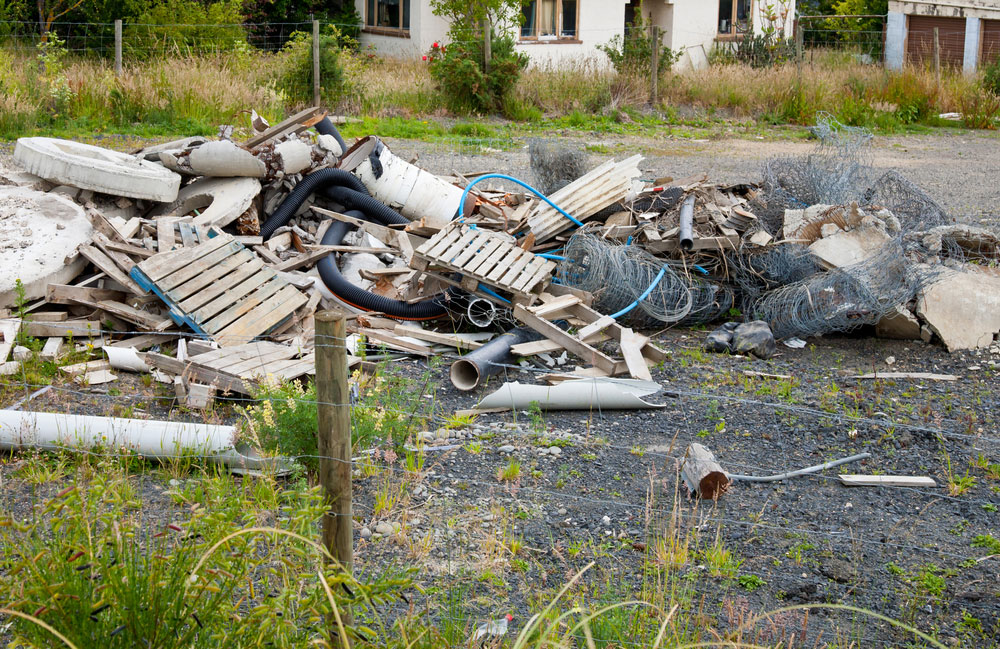
Construction Debris Removal Services in Huntington Beach
Before handling any construction debris, it’s essential to identify and adequately label hazardous materials, such as asbestos, lead-based paint, or chemicals. Trained professionals should take and dispose of these materials following specific guidelines and regulations.
Workers should separate construction debris into different containers or areas based on material type. It helps with recycling efforts and ensures that hazardous materials do not go with non-hazardous waste.
All personnel handling construction debris should wear appropriate PPE, including hard hats, gloves, safety goggles, sturdy footwear, and respiratory protection if necessary. PPE helps prevent injuries and exposure to hazardous materials. Designate safe areas for debris collection away from traffic and pedestrian paths.
Properly mark and barricade construction zones to protect the public from hazardous areas. Communicate hazards to all workers and ensure they understand the necessary precautions.
Construction Debris Removal Costs in Huntington Beach, CA
The cost of debris removal in Huntington Beach can vary depending on several factors, including the type and amount of debris, the size of the project, accessibility to the construction site, local disposal fees, and the chosen removal method.
Renting a dumpster or roll-off container is a common and cost-effective option for debris removal. The rental cost typically includes the delivery, pickup, and disposal fees. The size of the container will influence the price, with larger containers generally costing more than smaller ones. Selecting appropriately sized dumpsters or roll-off containers for the project can prevent overloading and ensure cost-effective waste management.
Hiring a professional debris removal service will involve labor, equipment, and transportation costs. The service may provide its crew to load the debris and transport it to a disposal facility or recycling center. The cost will depend on the volume and removed type of waste.
In some cases, debris removal services may charge based on the weight of the waste. It is common for heavy materials like concrete, asphalt, or soil. The heavier the debris, the higher the cost.
Despite the costs, many construction projects may have waste diversion goals set by local regulations or certification programs like LEED. Meeting these goals through proper waste management practices can result in incentives, rebates, or credits, reducing removal costs.
GET IN TOUCH
Schedule a Call
Construction Debris Recycling in Huntington Beach, CA
Recycling and reusing certain types of construction debris play a crucial role in sustainability efforts within the construction industry.
Facilities recycle and process concrete and masonry into aggregate, used as a base material for new construction projects, roadways, and pavements. The recycled concrete reduces the need for new gravel or natural aggregates, conserving natural resources and lowering energy consumption in the production process.
Used wood from construction sites can be recycled into mulch, wood chips, or particleboard. Additionally, you can reclaim some construction waste wood and repurpose it for new construction or as decorative elements. Recycling wood prevents deforestation and helps manage the disposal of this bulky material effectively.
By diverting these materials from landfills and incorporating them into new projects or products, construction companies can reduce the demand for virgin resources, minimize environmental impacts, and contribute to sustainability.
Construction Debris Removal Providers in Huntington Beach
Junk Mission
Junk Mission offers comprehensive construction debris removal services tailored to the specific needs of each project. Whether a minor renovation or a large-scale construction site, their team can handle debris, junk removal and provide trash haul service of all sizes and types. The company provides transparent and competitive quotes based on the volume and kind of debris removed. There are no hidden fees or surprises, and clients can rely on an accurate and fair assessment of their debris removal needs.
Pick Up My Crack OC
Pick Up My Crack OC has a team of skilled professionals who are well-equipped to handle debris of all sizes and types, ensuring a seamless and hassle-free removal process. Their flexible scheduling ensures that they remove debris promptly, allowing construction teams to maintain productivity without unnecessary delays. They provide clients with quotes based on the volume of removed debris.
Construction Debris Removal for the City of Huntington Beach
If you plan to seek assistance from the local government, Huntington Beach can offer a service provider where you can rent dumpsters or roll-off boxes. However, its service provider only provides rentals where you can transfer and haul debris independently.
Conclusion
Construction debris removal in Huntington Beach is pivotal in maintaining a clean, safe, and sustainable environment. As the city continues to grow and develop, the responsible management of construction waste becomes increasingly crucial. Proper waste management can divert significant amounts of debris from landfills, conserving valuable natural resources and minimizing pollution through recycling, salvaging, and responsible disposal.
Construction Debris Removal Frequently Asked Questions in Huntington Beach, California
How much does construction debris removal in Huntington Beach cost?
The average cost to remove construction debris is $150, but this price can range from $75 to $375, based on several factors.
How can I schedule construction debris removal services for my project in Huntington Beach?
Simply contact Junk Mission. Provide them with your project’s details, including the debris type and quantity, location, and the desired timeframe. They will offer you a quote and schedule a convenient time for debris removal.
How can I find local construction debris removal services in Huntington Beach?
To find local debris removal services in Huntington Beach, search online, check local directories, seek recommendations from friends or colleagues, and visit official city websites.
